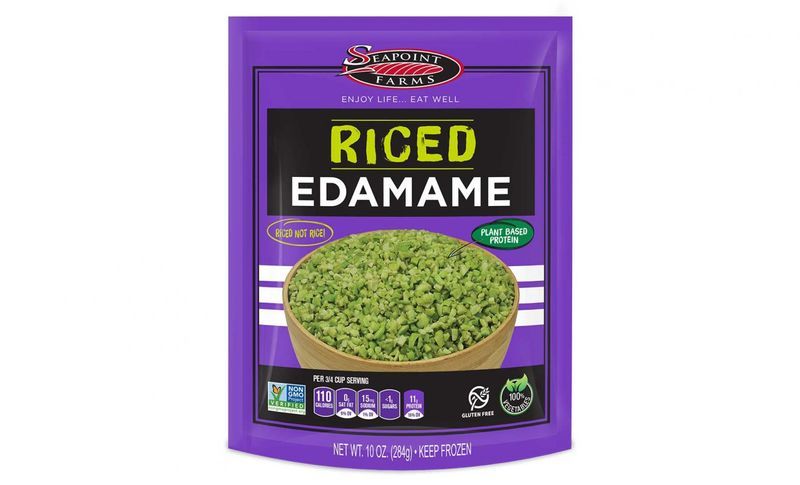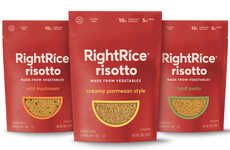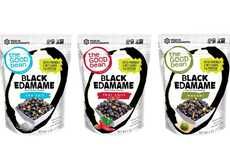
Seapoint Farms' Grain-Free Riced Edamame Delivers Plant-Based Protein
Laura McQuarrie — February 27, 2019 — Lifestyle
References: seapointfarms & theshelbyreport
Seapoint Farms is now introducing what it calls the world's first edamame rice substitute, which is simple, plant-powered and grain-free. This new 'Riced Edamame' has the potential to appeal to those on low-carb diets, those who are looking to get more plant-based protein or even those who are seeking out suitable alternatives to white or brown rice.
Alongside its plain Riced Edamame, Seapoint Farms is also introducing a Riced Medley with a colorful mix of edamame, cauliflower and sweet potato.
With or without certain dietary sensitivities, many consumers are looking to eliminate a variety of foods from their diets, which has helped formerly niche free-from foods break into the mainstream. When it comes to rice, consumers have welcomed like riced cauliflower and other inventive vegetable-based alternatives.
Alongside its plain Riced Edamame, Seapoint Farms is also introducing a Riced Medley with a colorful mix of edamame, cauliflower and sweet potato.
With or without certain dietary sensitivities, many consumers are looking to eliminate a variety of foods from their diets, which has helped formerly niche free-from foods break into the mainstream. When it comes to rice, consumers have welcomed like riced cauliflower and other inventive vegetable-based alternatives.
Trend Themes
1. Grain-free Rice Alternatives - The rise of grain-free rice alternatives driven by a growing demand for healthy and specialized food.
2. Plant-based Protein - The increasing popularity of plant-based protein, which is expected to disrupt traditional protein sources in food manufacturing.
3. Low-carb Diet Foods - The continued growth of low-carb diet trends, which creates a market opportunity for low-carb food substitutes like edamame rice.
Industry Implications
1. Food Manufacturing - There is an opportunity for food manufacturers to develop and market grain-free rice alternatives and other low-carb and plant-based protein products to meet growing consumer demand.
2. Health and Wellness - Health and wellness businesses can capitalize on the trend towards reduced carb consumption by offering personalized dietary recommendations specific to consumers' dietary preferences, health and wellness goals, and nutritional needs.
3. Agriculture - There is an opportunity for agriculture businesses to innovate plant-based protein sources, such as edamame, and partner with food manufacturers to meet the growing demand for healthier and sustainable food alternatives.
1.9
Score
Popularity
Activity
Freshness























